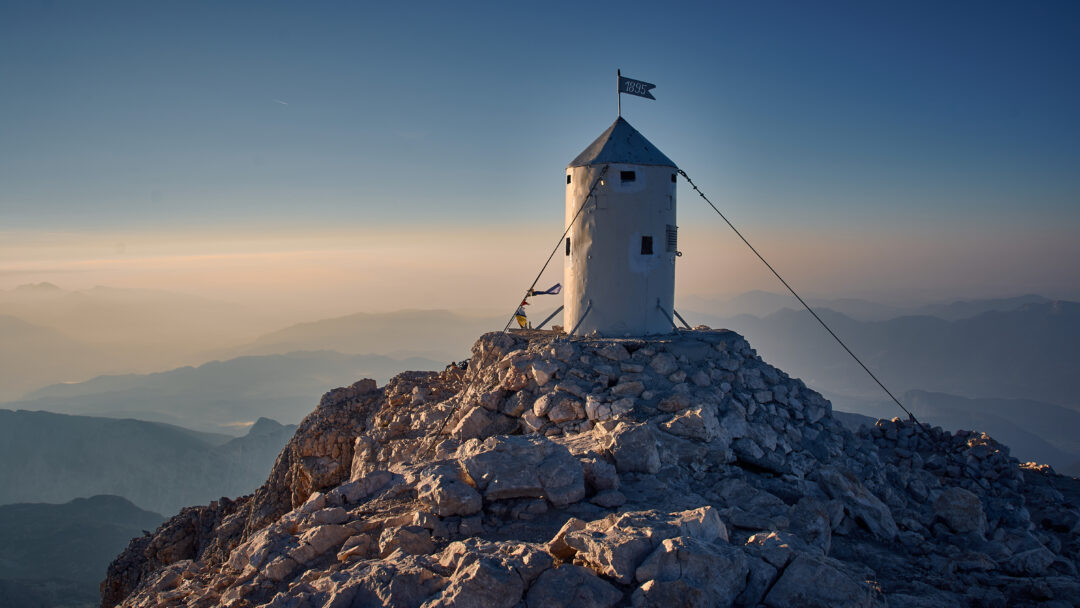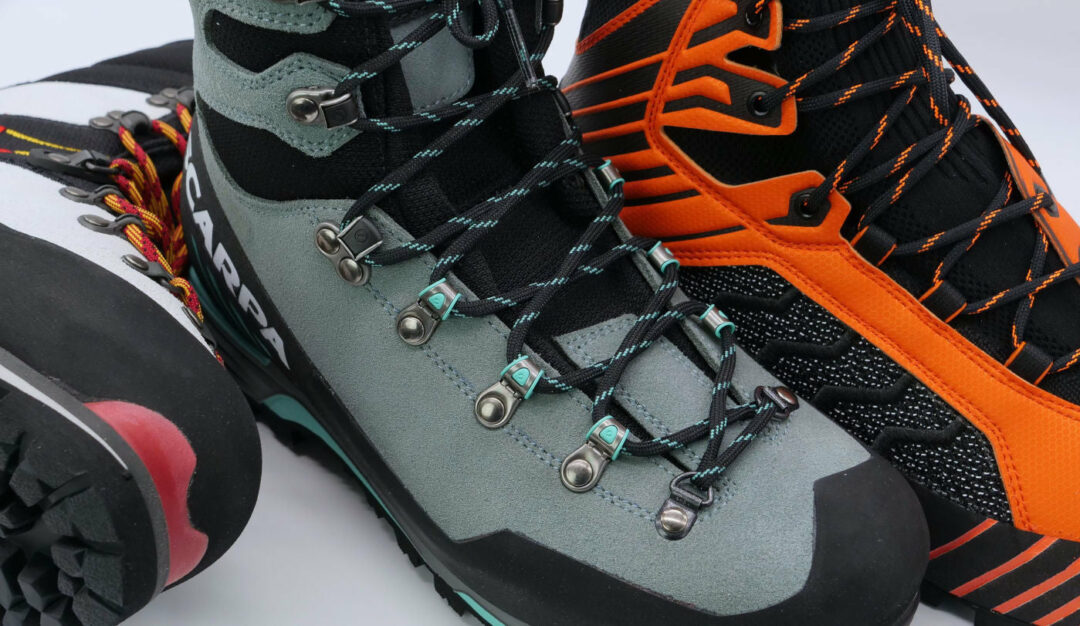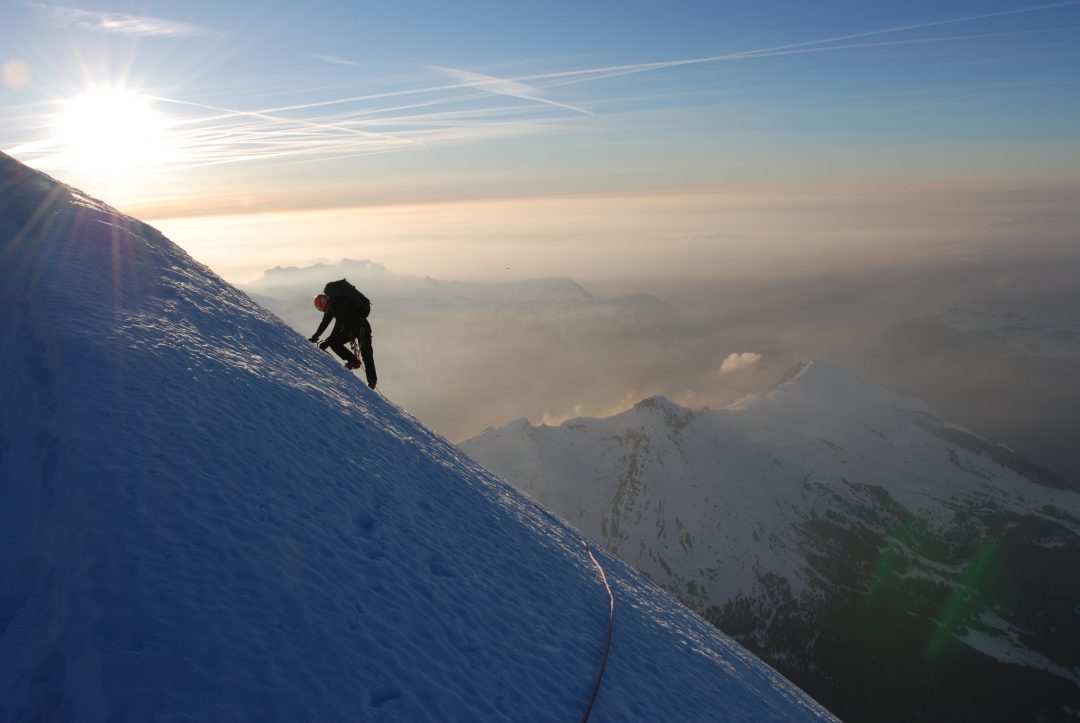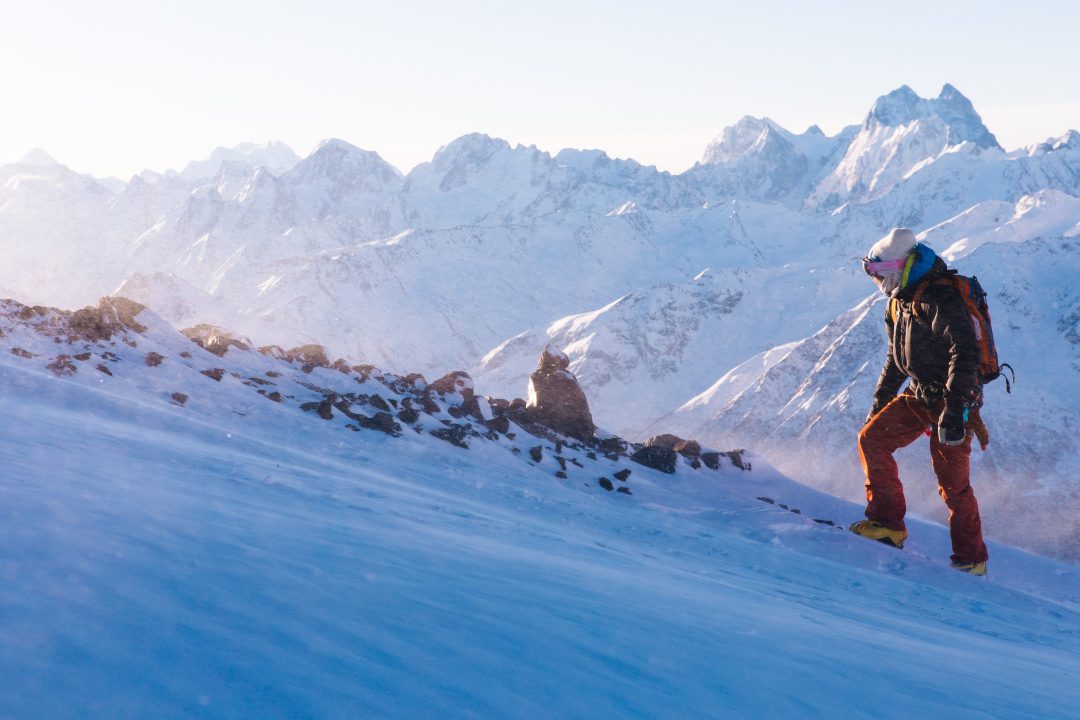There’s a moment every mountain climber remembers and dreams about repeating: standing at the summit, body aching but flooded with adrenaline, breath catching in the thin alpine air as the world stretches out below. It’s a moment worth chasing. But that moment doesn’t happen by chance. It’s earned — step by step, hour by hour, long before you ever set foot on the mountain itself.
If you’re a first-time or beginner climber thinking about taking on an alpine summit like Mont Blanc, the Matterhorn, or Gran Paradiso, you might be wondering where to start. What kind of training do you need? How do you prepare mentally? What gear is essential? And how do you even know if you’re ready?
At Adventure Base, we’ve helped thousands of climbers — many of them beginners — safely and successfully achieve long-held dreams on our Alps peak summit tours. In this guide, we’ll walk you through how to prepare before climbing a mountain, with a focus on the physical and mental readiness required to take on the challenges of high-altitude climbs in the Alps.
Scroll down to get started! And if you have any questions for us, please just get in touch.
Understand Your Alpine Climbing Challenge
Before we get into how to prepare, it’s important to understand what you’re preparing for. Mountain climbing in the Alps isn’t an unattainable sport reserved for elite athletes, but it’s not just an uphill hike either. It’s a physically demanding, high-altitude challenge that often involves long days, steep ascents, draining descents, glaciated terrain, and weather that can change in minutes.
Even the most “beginner-friendly” summits, like Gran Paradiso (4,061m), require stamina, confidence, and a solid base level of fitness. Climbs like Mont Blanc (4,810m), the highest peak in Western Europe, typically include glacier crossings, early alpine starts (think 2 or 3 am wake-up calls), and 10- to 14-hour summit days. The reward is absolutely worth it — but respecting the preparation process ensures you have a much more enjoyable experience that you remember for the right reasons.
We recommend reading our blogs How Difficult is it to Climb Mont Blanc? and What’s it Like Climbing The Matterhorn? for insights into what you can expect when attempting to summit some of the Alps’ most sought-after peaks.

Physical Training Essentials for Climbing in the Alps
You don’t need to be a marathon runner or a seasoned alpinist to summit your first mountain. But you do need to train. We usually recommend beginning a dedicated routine around eight to 12 weeks before your trip. This gives your body time to build the endurance and strength needed to move efficiently at altitude, often while carrying a pack.
Your training should include long walks or hikes — ideally on hills or trails — with a backpack. The more time you can spend on your feet, the better. Aim to mimic what you’ll experience on the mountain: multiple hours of continuous effort, variable terrain, and gradual elevation gain.
You’ll also want to work on leg and core strength. Exercises like lunges, step-ups, and planks are simple but incredibly effective. Stability, especially in your ankles and knees, is just as important as power. Many beginners underestimate how tiring descents can be — training for both up and down is essential.
If you don’t have access to trails, stair climbs, treadmill inclines, and strength circuits can still prepare your body. Just be consistent, push gradually, and, above all, listen to how your body responds.
For more information on physical preparation, read our training advice. The page offers a general introduction to the topic, with tips and recommendations you can apply to any of our peak experiences. We’re happy to provide more detailed, personalised plans for climbers booked onto our tours, so please just get in touch and let us know what you need.

Mental Preparation for Climbing in the Alps
Physical fitness will get you far on a mountain, but it’s mental resilience that carries most climbers through their hardest moments. There will be times, perhaps on a training hike, perhaps halfway up a ridge, when your legs burn, your breath shortens, and you’ll ask yourself if you can keep going.
Preparing mentally means developing the ability to sit with discomfort, trust the process, and stay focused on the next step rather than the whole climb ahead. Visualisation helps — picture the summit, picture the route, picture yourself walking steadily and confidently.
During training, make the conscious decision to keep going when it gets tough, so that when you’re faced with a real challenge at altitude, you’ve already practised overcoming that voice that says stop. Guided climbs, like those offered by Adventure Base, are especially helpful in this regard. Our experienced guides are not only mountain experts, they’re calm, encouraging presences who know how to support beginners when it matters most.
Have to decided which part of the Alps you want to explore yet? If you’re still on the fence, don’t miss our blog Which Country Has the Most Beautiful Alps?

Gear Up Right: Equipment and Clothing for Alpine Climbing
Good gear doesn’t just keep you comfortable, it keeps you safe. The Alps demand versatile, reliable clothing that can handle everything from sunshine to snowstorms, often in a single day. While we provide much of the technical equipment for our guided climbs (crampons, harnesses, ropes, and helmets), there are a few items every climber needs to bring.
Your clothing system should be built around layers. Start with a moisture-wicking base layer to keep sweat off your skin, add an insulating layer like a fleece or light down jacket for warmth, and finish with a waterproof shell for wind and rain protection. Gloves, a warm hat, and glacier-rated sunglasses are non-negotiable, even in summer.
Footwear is perhaps the most important choice. You’ll need proper mountaineering boots — stiff-soled, crampon-compatible, and fully broken in. Blisters and discomfort can ruin your experience, so spend time training in the boots you plan to wear on the mountain.
We’ll send you a complete kit list before your trip, and we’re always happy to answer gear-related questions along the way. But if you want some more insight before this, each of our individual peak tour pages has a section about the kit and equipment required to complete it, along with a link to a full kit list. For example, here is the Grand Paradiso kit list.
Browse our range of peak tours in the Alps and find out more about the climbs you’re interested in.

Acclimatisation and Altitude Preparation for Climbing in the Alps
Altitude is the great equaliser. Even fit, experienced athletes can struggle if they ascend too quickly or don’t give their body time to adapt. That’s why acclimatisation is built into all Adventure Base itineraries. Our Mont Blanc summit climb, for instance, includes a summit of Gran Paradiso beforehand. This gives your body a chance to adjust to the thinner air before attempting a higher peak while also sharpening the technical skills required to reach the peak of both mountains.
You can help this process by arriving a day or two early at your base location, staying hydrated, eating well, and moving slowly as you gain altitude. Symptoms like headaches, fatigue, and shortness of breath are normal in small doses, but knowing when to rest, when to push, and when to descend is key.
Our guides are trained in altitude awareness and safety protocols, and we’ll always prioritise your health and wellbeing over the summit. We also recommend visiting The Altitude Centre for more advice, especially if you’re an inexperienced climber.

Fuel, Hydration, and Recovery
Food and water might not be the first thing on your mind during a climb, but they can make a huge difference in how you feel and perform. In the weeks leading up to your ascent, focus on eating a balanced diet rich in whole foods, complex carbohydrates, and plenty of protein. You’re building an engine — you need quality fuel.
On the mountain, eat small, frequent snacks to keep your energy up. Many climbers lose their appetite at altitude, so bring food you know you’ll want to eat. Stay hydrated too; altitude increases fluid loss, and dehydration only makes things harder.
And don’t forget recovery! Rest between training sessions. Sleep well before your trip. Give your body the space it needs to repair and grow stronger.

Ready to Climb a Peak in the Alps?
Climbing a mountain in the Alps is one of the most rewarding challenges you can take on. And with the right preparation, it’s absolutely achievable, even if you’ve never done anything like it before.
Start training, break in your boots, learn what your body needs to thrive, and when you’re ready, let us help you take the next step.
At Adventure Base, we specialise in mountain climbing experiences, with guided climbs, flexible itineraries, and support that starts the moment you book. Whether you want to climb Mont Blanc, summit Gran Paradiso for the first time, or work your way toward a technical peak like a Matterhorn summit, we’re here to help you reach the top safely, confidently, and with a smile on your face.
Explore our Alps peak summit tours, or get in touch with our team to talk through your goals.

